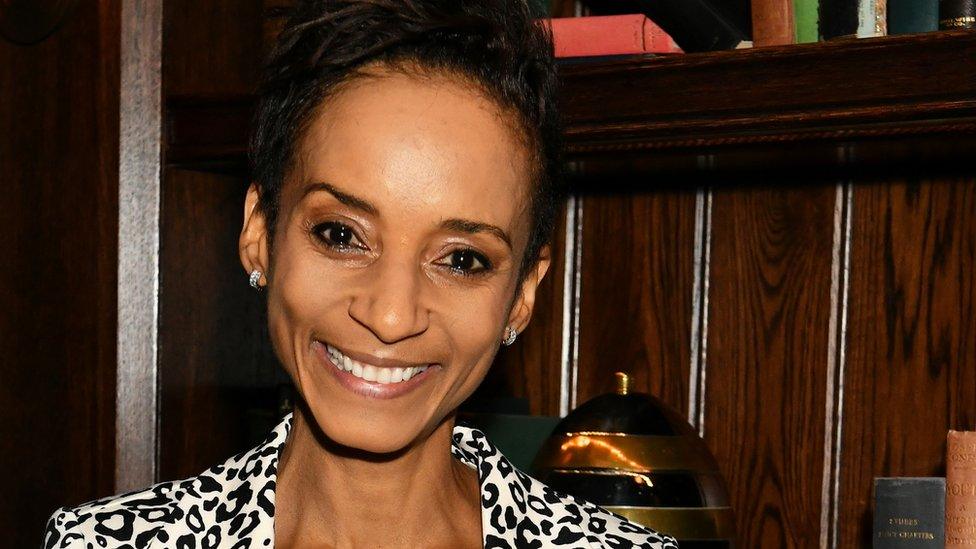Bowel cancer: Blood test detects most early-stage cancers - trial
- Published
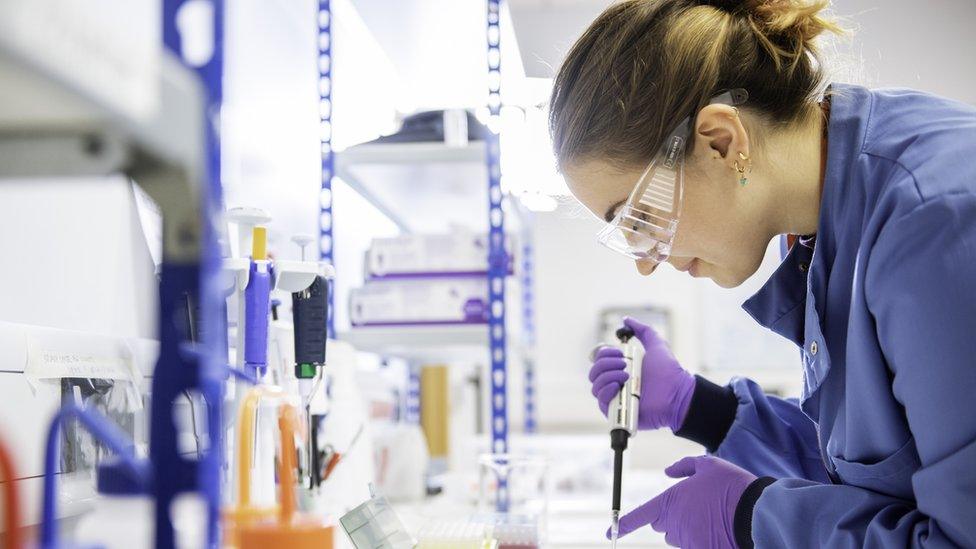
The Raman Spectometry blood test could help diagnose bowel cancer earlier
A simple blood test could be the key to saving thousands of lives across the world from bowel cancer, according to a charity.
The blood test, which uses Raman spectrometry, was developed by researchers at Swansea University, with funding from Cancer Research Wales and Health and Care Research Wales.
A trial showed the test picked up about 80 percent of early-stage cancers.
The test could be adopted by the NHS within two years.
The trial has just finished with GPs in Wales. There are hopes the test could be rolled out UK-wide and then globally.
Results from the study, which involved 27 practices and 595 patients across west Wales, showed 79% of early-stage bowel cancers and 100% of advanced bowel cancers were picked up by the test.
Campaigners hope easier testing, alongside podcast host Deborah James' campaigning work, will mean more people will get tested for bowel cancer and ultimately fewer deaths.
The results are very "exciting", according to the CEO of Cancer Research Wales, Ann Tate.
"This has been around eight to nine years in the making," she said, adding bowel cancer was very difficult to diagnose.
'Cancer fingerprint'
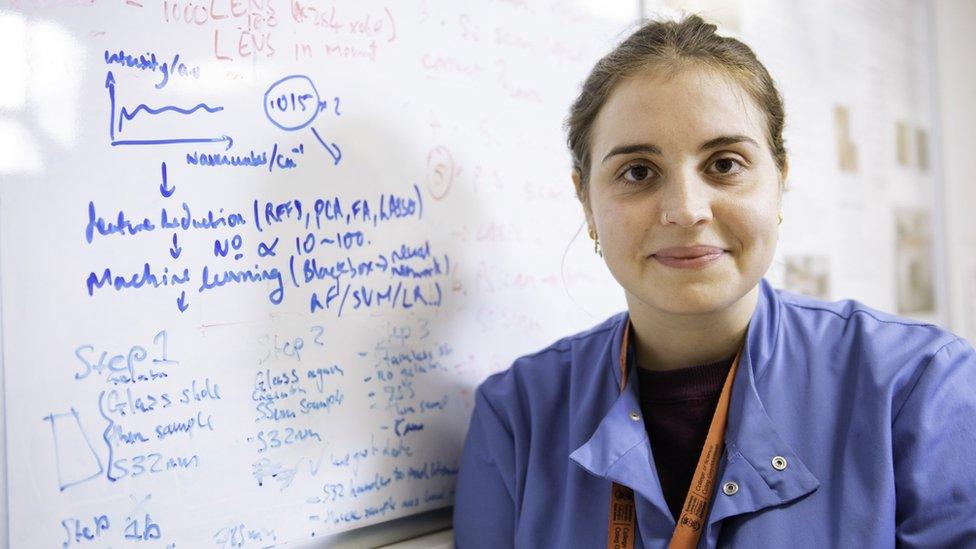
Researchers on the team have been working on the test for years
"It is really difficult for GPs when somebody comes and says they're not feeling well. They might be treated for all kinds of things first," Ms Tate said.
"This tool means the patient can take a simple test to check for bowel cancer.
"What this does is take a small sample of blood and fires lasers through it. It gives a pattern and using AI [artificial intelligence], the pattern can be checked to see if the cancer has leaked into the blood.
"It's like a cancer fingerprint."
GPs can then fast-track patients for early treatment.
'Bowel cancer stigma'
Ms Tate praised Deborah James, who recently received a damehood for her campaigning work and urged people to go to their GP and get checked if they have any symptoms.
Many of the 2,200 people diagnosed with bowel cancer a year in Wales are at an advanced stage.
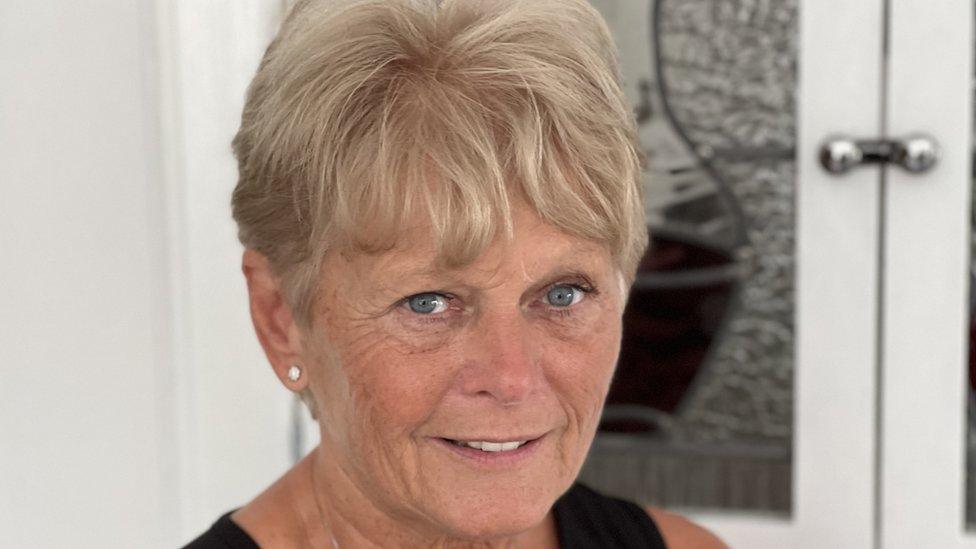
Lynda Atkins was diagnosed with advanced bowel cancer
Lynda Atkins, 66, from Swansea, was diagnosed with advanced bowel cancer in June 2021 and within weeks was having surgery to save her life.
She now lives with a stoma but is cancer free and hopes this easier testing could diagnose bowel cancers earlier than hers - and save thousands of lives.
"It's very important. It's going to save people's lives. If I had that test, my cancer would have been picked up sooner," she said.
"When I heard about the test, I just couldn't believe it."
She said she didn't have many symptoms.
"I'm very fit so I thought the weight loss was just down to swimming, being in the gym and cycling," she said.
"It was a huge shock to me that I had 12cm of cancer in my bowel."
She said Deborah James had made her want to be more open about her bowel cancer too.
"I think she's done tremendously well and I wanted to speak myself as she's been so out in the open about it all," she said.
"There's a stigma about bowel cancer - it's not out there enough."
'Life changer'
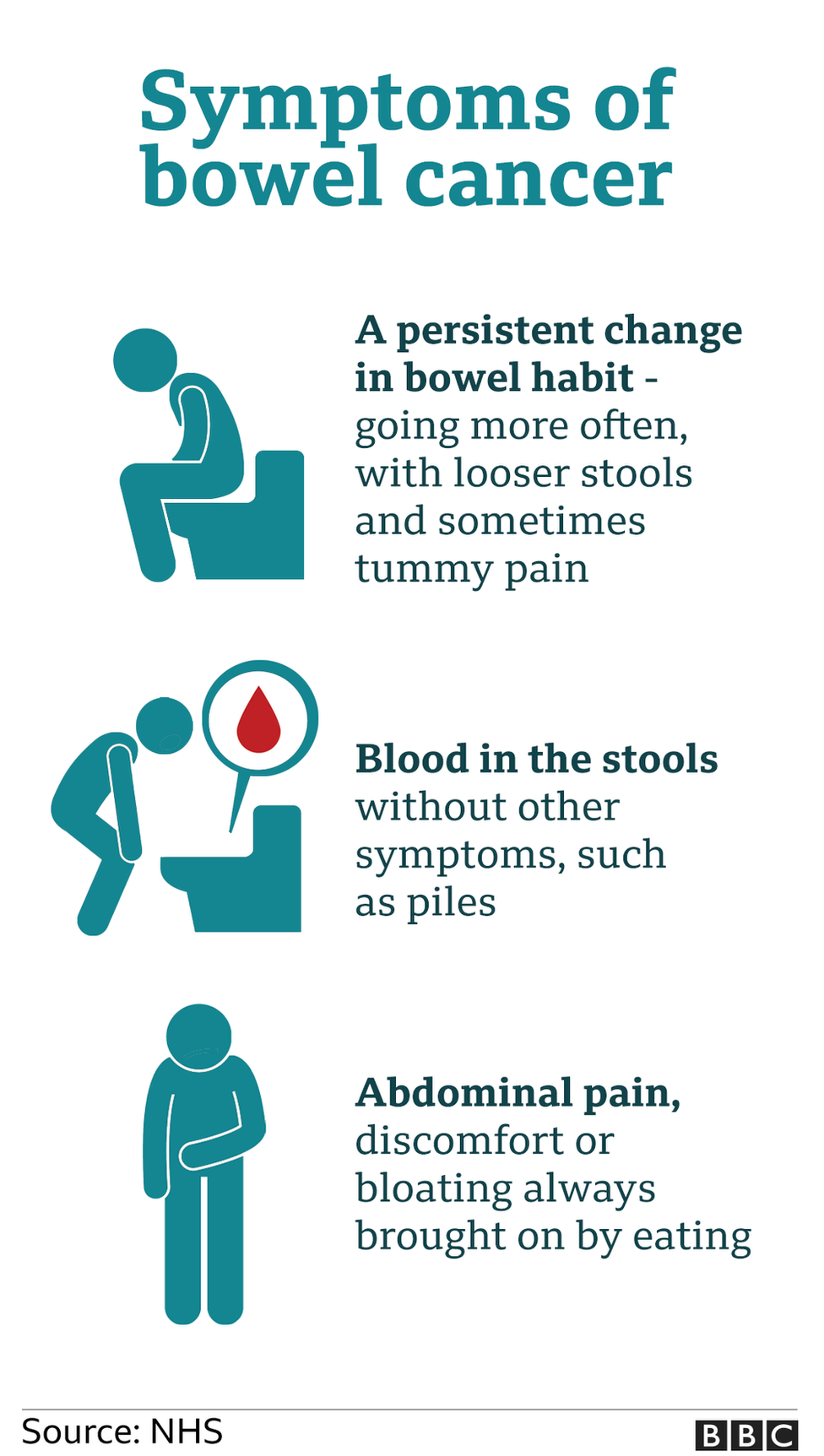
Bowel cancer is currently the second leading cause of cancer death in Wales, with waiting times for diagnosis and treatments some of the longest in the developed world, according to Cancer Research Wales.
In February 2022, there were 7,751 people waiting for a colonoscopy in Wales.
The figure has more than doubled since March 2020 when the pandemic hit, according to Welsh government statistics.
The blood test means people will be able to avoid more invasive tests, like a colonoscopy. That will also help the individual but also lowering the record waiting lists in Wales.
Ms Tate says it could be used for screening as well to replace the stool sample people over 60 are currently asked to produce.
The samples are not always accurate, meaning people are sometimes called in unnecessarily for a colonoscopy.
Ms Tate added: "It has potential to be a real life changer for all of us. That's the really exciting thing about this.
"The team are beginning to look to see whether this can identify other cancers. That's quite a long way down the line but if it does - it really will change things".
The testing project has received a £1.2m grant from the Nice, which will enable Welsh spin-out company CanSense to develop it into a certified format, providing a roadmap for approval for use on the NHS.

BORN DEAF, RAISED HEARING: Jonny Cotsen explores what it means to live in two different worlds
MARGINS TO MAINSTREAM: Michael Sheen introduces new writers revealing their truths

Related topics
- Published13 May 2022

- Published29 June 2022
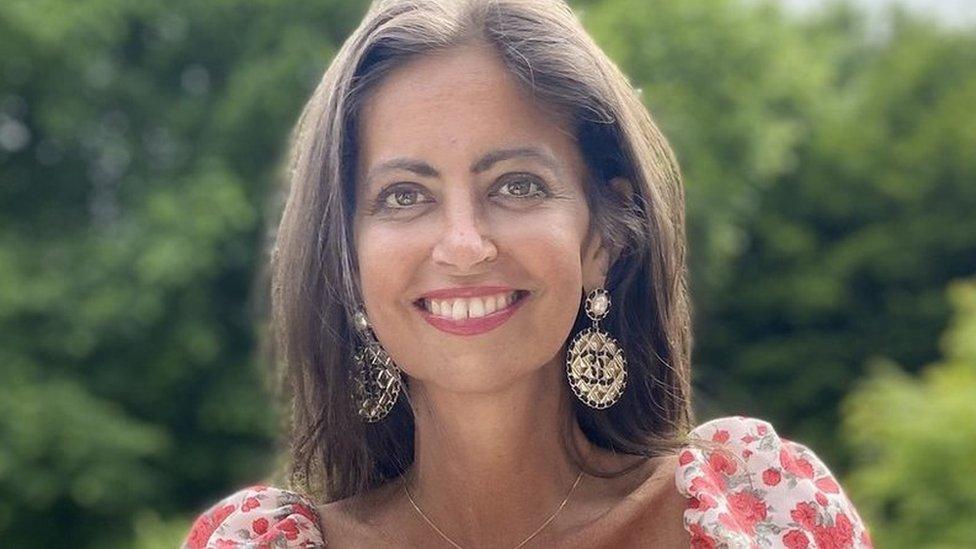
- Published27 November 2021
